
What are the factors that affect glass melting process?
The factors that affect glass melting are generally as follows:
1. Glass composition
The chemical composition of glass has a decisive influence on the melting speed of glass. Glass with different compositions has different melting speeds for the corresponding batch materials. Generally speaking, the more components with high melting point (SiO2, A12O3, etc.) in the glass, the slower the melting speed; the more flux content in the batch, the faster the melting speed. That is to say, the higher the ratio of alkali metal oxides and alkaline earth metal oxides to high melting point oxides in the glass composition, the faster the melting rate of the corresponding batch materials will be.
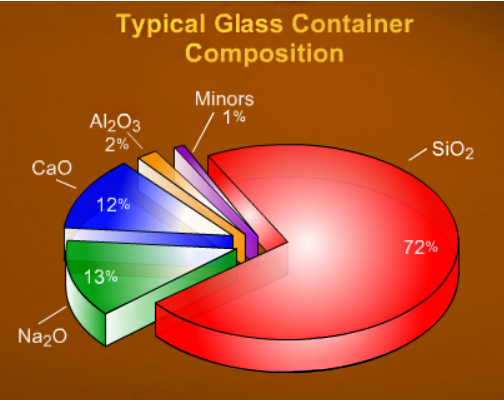
2. Properties of raw materials and batch materials
(1) The particle size of the raw material.
The reaction rate during the glass formation process is proportional to the size of the reaction surface. The finer the raw material particles, the larger the reaction surface and the faster the reaction.
(2) Moisture of the batch materials
It is necessary to add a certain amount of moisture to the batch materials. Wet materials are more conducive to reducing dust than dry materials, preventing stratification, increasing the melting speed, and improving the uniformity of mixing.
(3) The gas ratio of the batch materials
In order to accelerate glass melting, the batch materials are required to have a certain gas ratio. The gases they escape after thermal decomposition have a stirring effect on the batch materials and glass liquid, and can promote the formation of silicate and Homogenization of glass. For soda-lime glass, the gas rate of the batch is 15% to 20%. If the gas rate is too large, it is easy to cause bubbles in the glass; if the gas rate is too small, it is detrimental to the formation of silicate and the homogenization of the glass.
(4) Uniformity of batch materials
The more uniform the batch materials are mixed, the more conducive it is to melting. The uniformity will directly affect the output and quality of glass products. Generally, glass products require the uniformity of batch materials to be greater than 95%.
(5) Effect of broken glass (Cullet)
Adding a portion of broken glass to the batch can prevent the stratification of the batch and promote glass melting. However, the broken glass should be kept clean and harmful impurities should be removed. Its composition should be consistent with that of produced glass, and the dosage should generally be controlled at 10% to 30%. When using broken glass for a long time, it is necessary to promptly check the burning loss of alkaline oxides and the increase in silica, and make timely adjustments and supplements to ensure the stability of the composition. Adding too much cullet is not conducive to melting; too fine a particle size will prolong the time for the melt to remove visible bubbles.
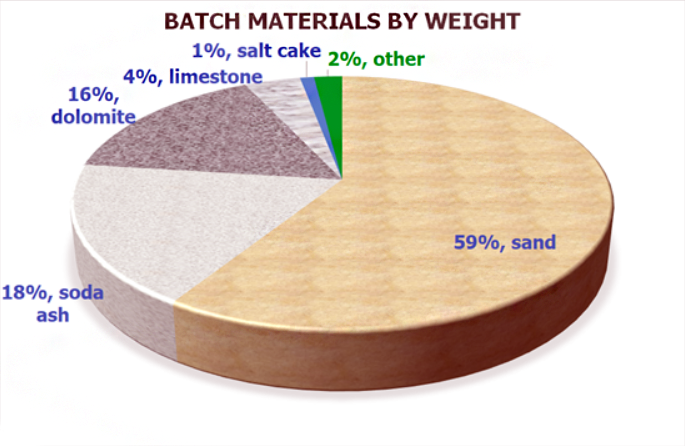
3. Feeding method
The thickness of the batch material layer put into the furnace has an important impact on its melting speed and furnace productivity. If the feeding interval is long and the material pile is large, the contact area between the material layer and the flame will inevitably be small, which will slow down the melting process. At the same time, the batch materials on the surface will melt to form a film layer with low alkali content. The viscosity will be extremely high and the gas will be very strong. It is difficult to pass and brings difficulties to refining. The thermal decomposition process can be greatly accelerated by using the thin layer feeding method. In addition, due to the thin material layer, the surface temperature of the glass liquid is high and the viscosity is low, which is very conducive to the elimination of bubbles and improves the refining speed.
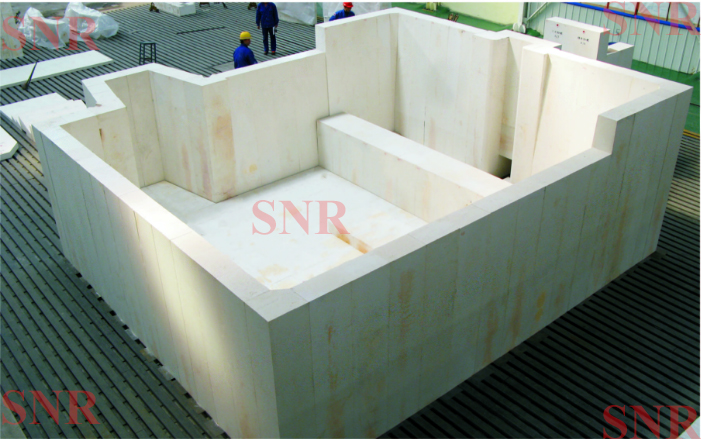
4. Glass melting system
Mainly the temperature system, pressure system and atmosphere system.
The melting temperature determines the melting speed of the glass. The higher the temperature, the more violent the silicate formation reaction, the faster the quartz particles melt, and the faster the glass is formed. It can be seen that increasing the melting temperature is an effective measure to strengthen glass melting and increase the production capacity of the furnace. However, when using high-temperature melting, the limitations of the use temperature and life of the refractory material must be considered.
The furnace pressure system directly affects the temperature system, so the accuracy and stability of the pressure system play a certain role in ensuring the melting of glass. Generally maintain slight positive pressure or zero pressure.
The atmosphere in the kiln can be divided into oxidation, neutrality and reduction according to the properties of the kiln gas. The control of the atmosphere depends on the composition of the batch materials and glass and the specific process requirements.
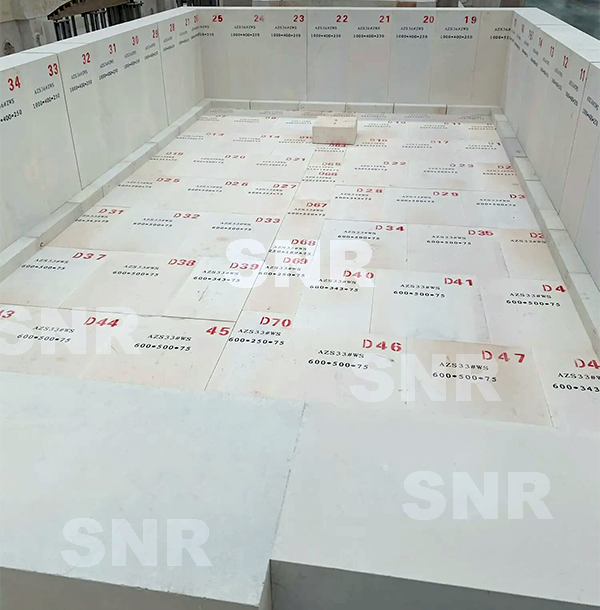
5. Application of accelerator agent
Accelerators are usually chemically active substances that generally do not change the composition and properties of the melt, but can reduce the surface tension and viscosity of the melt, increase the heat penetration of the melt, facilitate the elimination of melt bubbles and chemical homogenization, and improve the quality of the melt. . Therefore, accelerators are often also clarifiers. Such substances mainly include nitrates, sulfates, fluorides, variable oxides, etc.
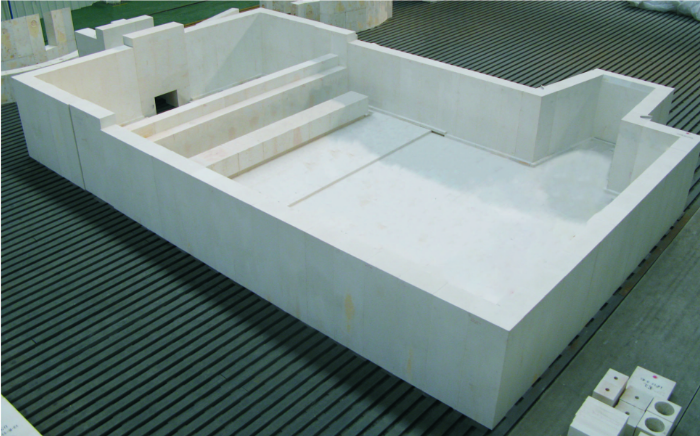
6. Auxiliary electric boosting system and stirring
In the operation of a fuel-heated furnace, electric current is passed into the molten glass at the same time to increase part of the heat, thereby increasing output without increasing the capacity of the furnace. This melting method is called auxiliary electric melting. They are generally located in the melting part, feeding port and operating part of the furnace. Mechanical stirring or bubbling in the furnace is an effective measure to increase the clarification and homogenization speed of the glass liquid.
.jpg)
Where can you buy the high-quality refractory bricks?
Zhengzhou SNR Refractory Co., Ltd (SNR) are dedicated to glass furnace design, refractory bricks research, development, manufacturing, furnace construction, innovation and upgrading for 30 years.
Whatsapp:0086-182 0397 6036,
Email:davis@snrefractory.com.